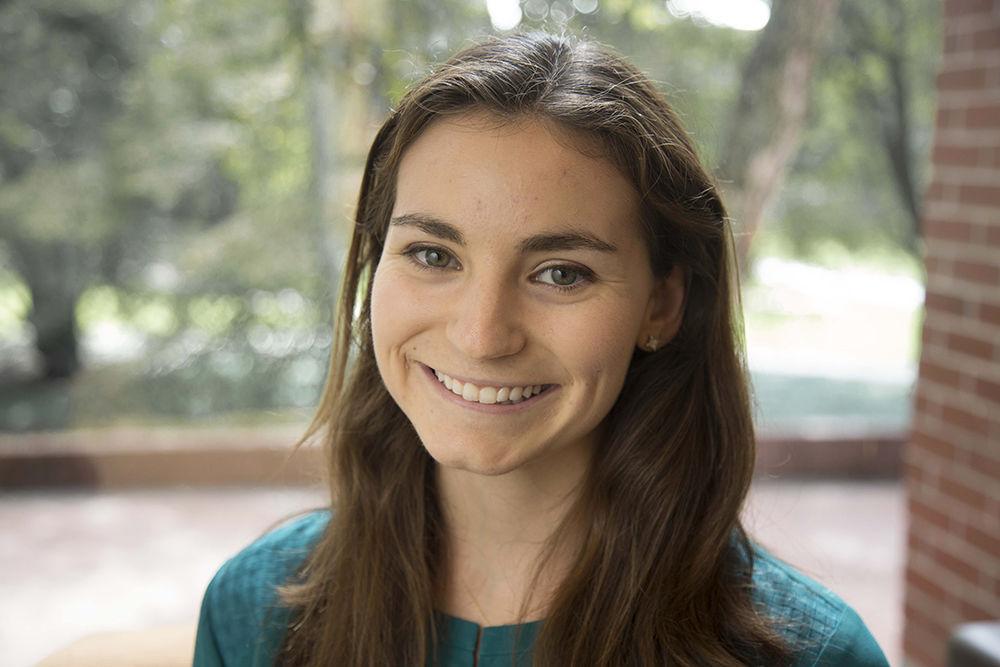At NC State, students are always hearing the slogan “Think and Do.” This phrase is truly embodied through Jessica Hatcher’s work in the linguistics department. Hatcher, a graduate student studying English with a concentration in linguistics, consistently participates in community engagement through her research. Hatcher has been passionate about educating people throughout her academic career, believing it to be a way of fostering change and helping others.
“The people are the most important part of any work,” Hatcher said. “If I do research and write a paper and it’s only the teacher and I who ever know what’s in the paper, then what’s the point?”
Hatcher explained that the linguistics department emphasizes the importance of sharing its work far and wide.
“We need to be out of our ‘ivory tower of academia’ where people write and do all these things and then don’t share it with anyone else,” Hatcher said. “We know how important language is and we know that people judge other people negatively based on the way they speak. We feel we have an obligation to share that with other people.”
Her most recent work has been in a local seventh grade classroom, teaching students about the relationship between sociolinguistics and their social studies curriculum.
Hatcher said that in the sociolinguistics department, researchers look at language as it relates to social variables. This means determining whether or not individual pronunciation is an indicator of one’s community identity, ethnicity, socioeconomic background, gender identity and other distinguishing factors.
Hatcher explained that her work with the seventh graders is based on taking what she’s learned through the department’s own research and sharing it with others.
“For the seventh graders, what we did was a series of three lessons that combined critical language pedagogy,” Hatcher said. “Critical language pedagogy is a way of teaching that pushes students to examine how power relates to language or how systems of power operate through language. So we took that approach and applied it to their social studies content they were already learning.”
In this project, the students are the most critical part of the overall experience. Moving forward, Hatcher hopes these young students will learn the importance of language — and how it is vastly interconnected with the world around them.
“For the school we worked with specifically, it was really important [to share these connections] because we working with a school that served disadvantaged populations who are directly affected by these negative language attitudes,” Hatcher said. “I hope the lessons we did empowered them with their language, made them more confident in the way that they speak and discouraged them from judging others on the way that they speak.”
One of Hatcher’s mentors is Walt Wolfram, Williams C. Friday distinguished university professor, who was a major influence in developing and expanding the linguistics department’s community outreach efforts.
“What we’re trying to do is trying to put our research into action and give back to the communities that fuel our research as well as the general public,” Wolfram said. “As it turns out, the general public is grossly misinformed about language diversity, its significance, where it comes from and what it means.”
Wolfram stressed the importance of the public’s understanding of linguistic diversity, and how much misinformation and stigma surrounds the diverse ways that people speak.
“My feeling is that one of the goals of education should be to replace myths we have about different phenomenon with empirical facts,” Wolfram said. “Unfortunately our society has a lot of myths about language where there is right and wrong with language rather than the fact all language is right because it follows rules and what is right and wrong is social and based on power and hierarchies.”
Community engagement within classrooms of all academic levels is also important to Wolfram’s work, an idea the department is continuing to bring to life.
“I hope that what they get out of it is to respect the language that they speak,” Wolfram said. “Kids who develop respect for the language they bring to the school make bigger strides learning in school than those whose language is dismissed.”
Wolfram and Hatcher work to educate all communities on social linguistic diversity. Their outreach extends to K-12 classrooms, NC State students and the general public.
“I want students to understand that there is an issue of social justice involved here,” Wolfram said. “Linguistic injustice is a part of social injustice.”













